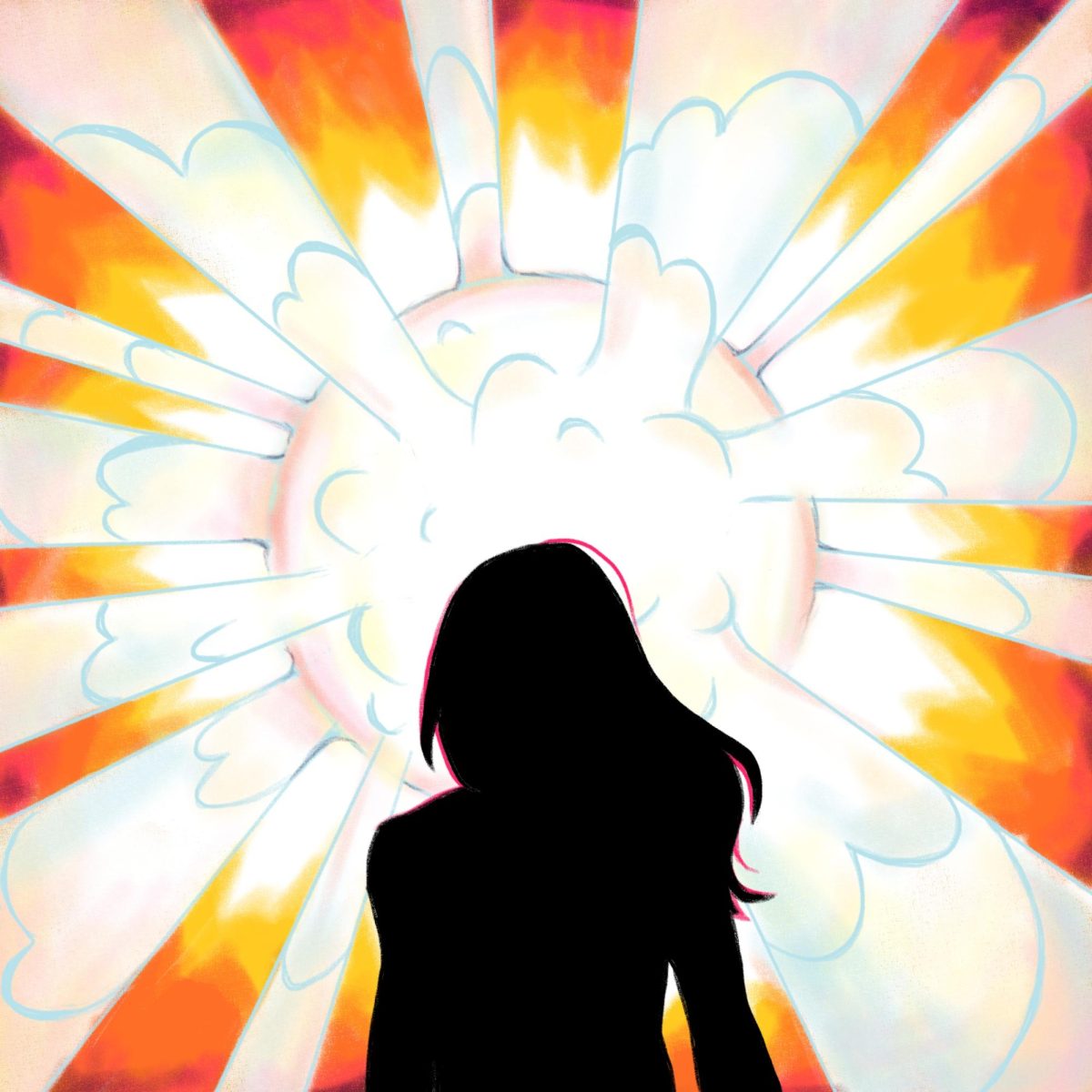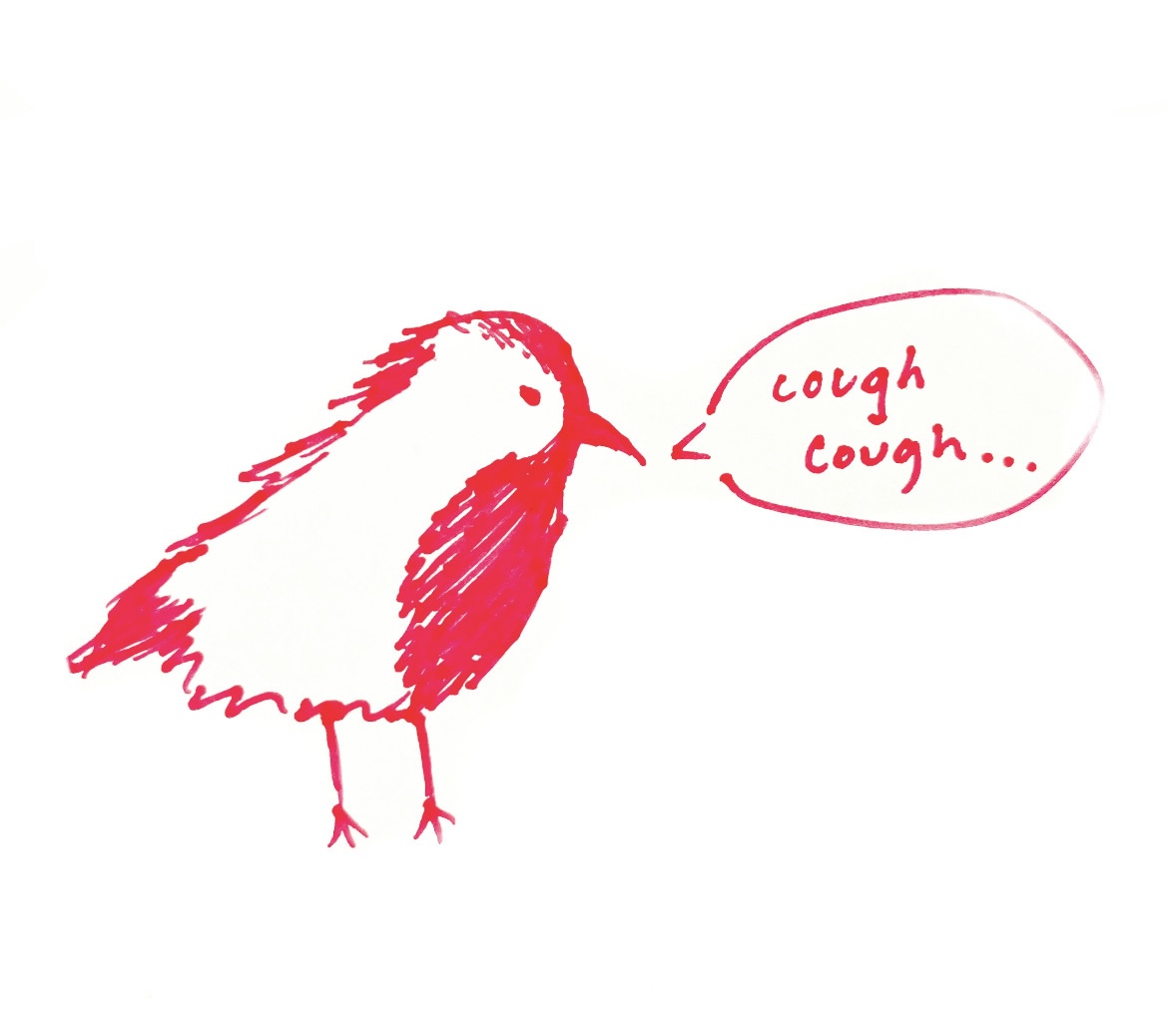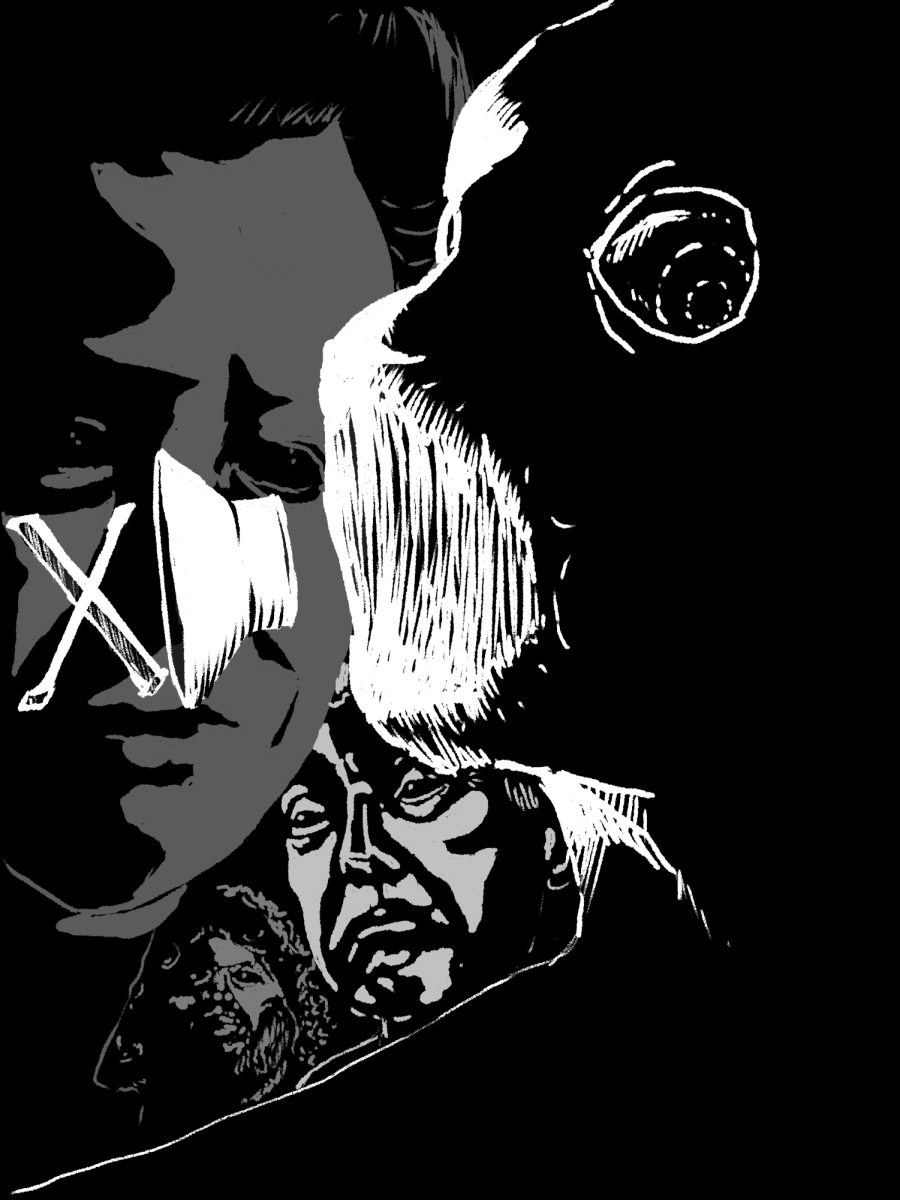
The gate shuts behind me, heavy metal bars sliding on an automated, computer-controlled track, and I am surrounded. Before me, a short walkway, encapsulated by wire––concave chain-link fence with concertina wire top and bottom. The tubelike cage extends to another sliding metal door, controlled by centralized computer. Outside this enclosed walkway is a stretch of gravel no man’s land, which marks the boundary between those who have the freedom to leave this place at the end of the day and those who must stay here, for months, years or life. I belong in the first category; my friend, whom I’m going to see for the first time in over a decade, belongs to the second.
* * *
Robbie was my first babysitter. His family lived kitty-corner from the house I grew up in, and he watched me and my younger brother as we played in the backyard on warm summer afternoons. By the time I was old enough to form lasting memories, our care had largely been taken over by his younger sister, Julie, whom we adored. My earliest real memories of Robbie came later, when I heard he’d robbed a fast food restaurant, shooting someone in the leg in the process. I was in middle school when he was sentenced: twenty years in prison. My family had moved to a larger house in a different neighborhood by then, and I had kids of my own to babysit, so I didn’t think much of it.

After choosing Whitman, I soon realized that I would be studying in the shadow of the Washington State Penitentiary, home to all seven of Washington’s death row prisoners. I’d heard whisperings from my mother (who still kept in touch with our old neighbors) that Robbie might be in prison there. My junior year, I found myself wishing to write letters to someone, and his name crossed my mind. A week of sleuthing revealed that he was not, in fact, in the Pen; instead, he was at Coyote Ridge Corrections Center, located in a small town an hour and a half away from Walla Walla. I decided to write him.
Expecting our first interaction to be awkward, I kept my letter brief. I reminded Robbie who I was, assuming my name might not be familiar, and gave him the abbreviated version of the past fifteen years of my life. His response came quickly. He updated me on his prison time––he had been in the Penitentiary, it turned out, before being transferred to Coyote Ridge. He’d gotten into some trouble during the first years of his sentence, but had since settled down. He was attending community college classes and working towards his Associate’s degree. He also told me that, while I was free to call him Robbie, most everybody who knew him now called him Inca, a reference to his indigenous Colombian heritage.

We soon began corresponding regularly, him writing me every few weeks, me responding when I had time. I sent him a few of my articles and a more recent photo, so he could have a better picture in his head. He started calling me, and we would chat for 20 minutes or half an hour before I’d have to leave for class or work. Aside from his classes, he talked about doing traditional Native American beadwork and dances. The prison, he told me in July, would be having a powwow in the fall for its indigenous and Native inmates––not as big as the one he was in last year at the Pen, but still a fun, full-day event with traditional food, dance and artwork. Would I come as his guest? After figuring out where, exactly, Coyote Ridge was (halfway to Spokane on Highway 395) and asking my boyfriend if he’d be willing to give up a Saturday to drive me there, I told Robbie I’d come. I mailed back the visitation form, authorizing a background check and affirming that I had no prior convictions, and waited for September 22 to roll around.
* * *

Connell, Washington isn’t much of a town. Walla Walla’s penitentiary is sustained by a surrounding population of 32,000 people, but Connell gets by with just 5,200. The prison is just outside of town, sitting, as the name promises, on a barren ridge. It was a gray day, threatening to start raining, and nervousness combined with a lack of sleep the night before had my stomach in knots.
I waited in a room––it seems inaccurate to call it a lobby––while prison guards processed IDs. The prison chaplain made announcements: Anyone bringing in Native regalia needed to have it hand inspected; tobacco would be allowed in for sacred purposes only, not for personal use. Next to me, a young woman sat as still as is possible when you’ve got two toddlers in tow. The girls ran circles around her ankles and chattered to each other.
“We’re going to see Daddy today!” the younger girl exclaimed. Her dark hair was wound into tight pigtails which almost bounced as she chased her sister. Their mother, laughing, told the girls to calm down and stop bothering everyone else.
The hard plastic chairs were all filled with families––old women wearing traditional beads and walking with canes, young boys with long, black hair braided carefully for the occasion. These were people with relatives and loved ones behind bars, those for whom a prison visit was simply part of a normal weekend. I felt out of place as I listened to the conversations around me––people going to visit husbands, fathers, uncles and sons. What would I say if one of them asked me––”I’m going to see my babysitter from when I was three”?
Almost two hours behind schedule, the guards finally said they were ready for us to enter the facility. We went through a metal detector one by one before walking out of the visitor’s lobby, through a series of gates and into the visitation room. Almost as soon as I entered the room, I saw Robbie, recognizing him from the photo he’d sent me. He was wearing a traditional dance outfit: a loose sleeveless shirt and pants with two circles of feathers, each three or so feet in diameter, attached to his back and hips. They fanned out in a blue-white-blue-white sequence, making him look larger than life. He had bells around both ankles, which sounded like sleigh bells every time he took a step. All around him were other dancers wearing equally colorful and elaborate regalia––some, like Robbie, were decked out in fancy dance attire, while others had on fringed outfits which were designed for grass dancing.

“I’ve never fancy danced before,” he told me, looking excited and slightly nervous. “Last year I did grass dance.” I asked him what grass dance was, and he said it’s where the dancers flatten down the grass to start off the powwow. We both looked around at the room, which was more or less a glorified cafeteria––plain white walls with a wall of vending machines marked by a large sign proclaiming that inmates were not allowed near them––and laughed a bit at the thought of grass. He took me over to the tables where we’d be sitting and introduced me to the other dancers, as well as his “cellie” (cellmate), who shook my hand and said he’d heard about me.
The powwow began shortly after, with alternating dances, prayers and songs. Circles of drummers, a mix of inmates and those from the outside, sat around massive traditional drums, pounding them with mallets and singing to accompany the dancers. Robbie got up to dance several times and returned sweating and exhilarated to explain the rest of the proceedings to me. We took a photo together––one of us smiling with his arm around me (he called me “Lil’ Sis”) and one in “prison pose”––both of us standing to the side with a fist in our other hand, looking at the camera like we meant business.
One of the final dances of the afternoon was the Owl Dance, which an older woman sitting next to me explained was a lady’s choice.
“You can ask any man to dance with you, and he has to say yes,” she said, with a hint of mischief in her eye. “Otherwise, he has to give you a gift.” After sitting on the sidelines for a few minutes, I asked Robbie to join me, and we stepped rhythmically in a circle around the room, in line with a dozen or so other couples.
At times, the powwow seemed seamless, like we were simply a group of people gathered together to celebrate. Lunch was a traditional salmon and buffalo stew extravaganza, with wild rice and fry bread on the side. I swallowed my vegetarianism to partake and was impressed––nothing on my plate tasted like it had come out of an industrial prison kitchen.

All of the guests were given gifts, beautiful pieces of beadwork that had taken hours and hours to create. Robbie gave me a rosette with what looked like a cattle skull on it that he’d had a friend make for me, and a beaded turtle keychain with lavender in it that was his own creation. Lavender, he explained to me, was women’s medicine, and he’d gotten the idea for the turtle after I sent him a photo of myself on study abroad hanging out with Galapagos tortoises in Ecuador.
The men who had worked for months to make the ceremony happen sat with wives and ex-wives, sons and daughters, looking proud and happy in their dance outfits. I saw them holding toddlers and dancing with the women who brought them in, and wondered how many more months or years each of them would be stuck in this place, only able to see their loved ones for a few hours every few weeks. I couldn’t imagine what it would be like to have your father taken away from you and put behind not only bars, but gates, concertina wire with a few hours of barren semi-desert separating him from your home. I wondered if my gut reaction would be any different knowing what crimes these men committed. I wondered how many of them were behind bars because of bad luck, locked up for drug possession or something else where only a small handful of the guilty are ever tried or convicted.
The day came to an end, and I thanked Robbie for inviting me. We hugged, and I told him I’d keep writing when my schedule allowed. I went to line up with the other guests for processing out of the facility, and I took a last look across the room at Robbie, who was chatting with some of his fellow dancers. He seemed at home after over a decade of incarceration, probably more at home than he’d feel on the outside, since he left that world before smartphones, tablets and most modern technology existed at all. I couldn’t imagine that the remaining six years of his sentence would teach him much he didn’t already know––all they would do was put him further out of the loop. He’d successfully lobbied to have his case heard by a court earlier in the year, which had ruled his twenty-year sentence cruel and unusual punishment. Still, he had years to go before he’d be allowed to walk free.
After reclaiming my ID and possessions from the visitor waiting room, I walked back out of the prison. Though hours had passed, the sky was still gray and drizzling, and the prison behind me looked as nondescript as ever. Sound- and color-proof, you’d never know from a glance that the building had been full of dancers and drummers, families decked out in sacred clothing, fathers reconnecting with children. The sounds of jangling bells and traditional songs seemed distant as I listened to the rolling gate click shut behind families who were filing out behind me.
I knew nothing about traditional powwows, but I imagined that the event I had been to was a hodgepodge of different tribes’ traditions, an amalgam created out of necessity in less-than-optimal circumstances. Maybe I was reading too much into an afternoon which was, above all else, a celebration. But I thought back to Robbie, fancy dancing in front of everyone, working to get what he could out of his time in prison even while he appealed his sentence. The dancing, the music, the creation of a community against the odds, even if it was only for a day: more than just a celebration, an act of resilience.







